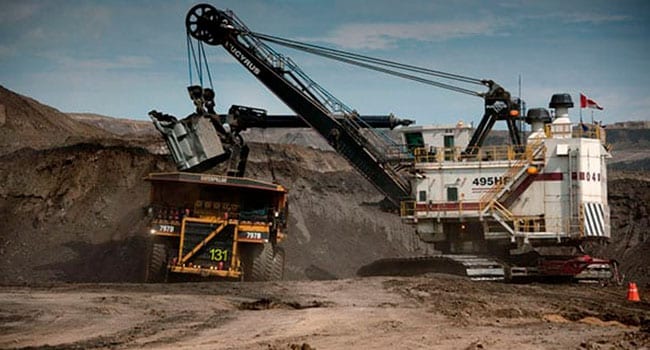 To say the Teck Resources’ Frontier oil sands debate is fraught has become a bit of an understatement. At times, it appears the fate of the world hangs in the balance.
To say the Teck Resources’ Frontier oil sands debate is fraught has become a bit of an understatement. At times, it appears the fate of the world hangs in the balance.
On one side, political proponents are telling us that the very future of Alberta’s economy hinges on this project moving ahead. On the other side, environmentalists are warning that Frontier could strike a mortal blow to Canada’s boreal forests and our carbon future (because, you know, it’s the fault of Canada, not China, the U.S. and Australia that the world is flooded with greenhouse gases).
It’s even been said that the fires of Western separatism could flare out of control if Prime Minister Justin Trudeau’s Liberal federal government fails to give this mine a rubber stamp.
That’s a lot of political baggage for what’s supposed to be a business decision.
Teck’s Frontier is a big, big project, for sure. And given some of the economic disasters going on elsewhere in Canada, the country could use the revenue it promises to generate (more on that in a minute) as a way to offset money pits elsewhere. Consider, for example, the financial black hole known as the Muskrat Falls hydroelectric project in Newfoundland or Quebec’s ever-fading Bombardier empire.
In short, some region of the country has to be revenue-positive and a lot of people would like it to once again be Alberta. Oh, for the days of $100-a-barrel oil.
The question, however, is whether Frontier is the road to a prosperous future or a route to financial oblivion. For Albertans, it’s never been more important to get the answer right.
In an article written for the CBC website last week, economist Andrew Leach and law professor Martin Olszynski offered some sobering statistics on Frontier’s prospects for financial success. Their article, in part, noted that revenue estimates for the project are grossly inflated, given that they were made back in 2011, which you’ll remember was a much happier time for the industry.
Noting the crash in oil prices since then, Leach and Olszynski offer this observation: “Moving from a 2011 oil price forecast to a current equivalent would reduce expected revenues from the Frontier project (all else equal) by about a quarter, while reducing taxes, royalties and return on capital each by about a third.”
“If oil prices follow the $65 plus inflation break-even … that would reduce revenues by almost two-thirds, and taxes, royalties and returns to investors by about three-quarters.
“At today’s oil prices, plus inflation, revenues would be reduced by three-quarters relative to 2011 forecast levels, and taxes, royalties and returns on capital would be reduced by about 95 per cent.”
In short, those revised calculations suggest the project may not make fiscal sense at all. And that’s setting aside the very serious environmental considerations, which also come with a steep cost.
Given this reality, it seems like a bizarre time for the province to draw the line in the sand with the federal government. Should the feds give this project the green light – a more dubious proposition than approving the Trans Mountain pipeline expansion – it’s still highly unclear whether it actually makes sense to move ahead. In any case, it seems certain that the Frontier project will do little to consolidate the province’s economic future.
In spite of the naysayers, Teck still wants to forge ahead. And given that it promises 7,000 transitional jobs in a province with a 7.3 per cent unemployment rate, it probably makes sense for governments not to stand in the way. However, there needs to be better, rock solid regulations to ensure the land is fully rehabilitated at the project’s end. Stricter regulations would mean, among other things, revisiting Teck’s plan to accumulate 240 million cubic metres of fluid fine tailings by 2037. That’s a liability no one wants to see.
The growth in global demand for oil is expected to slow from 2025 on as fuel efficiency improves and the use of electric vehicles increases. But consumption is unlikely to peak in the next two decades, according to the International Energy Agency. That means the world either buys Canada’s comparatively clean oil, or it seeks it out from less socially and environmentally responsible jurisdictions.
Our federal government can help make that happen by rendering a quick and clear decision, and not subjecting Teck to the drawn-out legal limbo that turned the Trans Mountain project into an endless nightmare.
Allowing the project to proceed – responsibly, with best available environmental practices – really is in the national interest. It’s time for the federal Liberals to be decisive, for once.
Veteran political commentator Doug Firby is president of Troy Media Digital Solutions and publisher of Troy Media.
The views, opinions and positions expressed by columnists and contributors are the author’s alone. They do not inherently or expressly reflect the views, opinions and/or positions of our publication.


